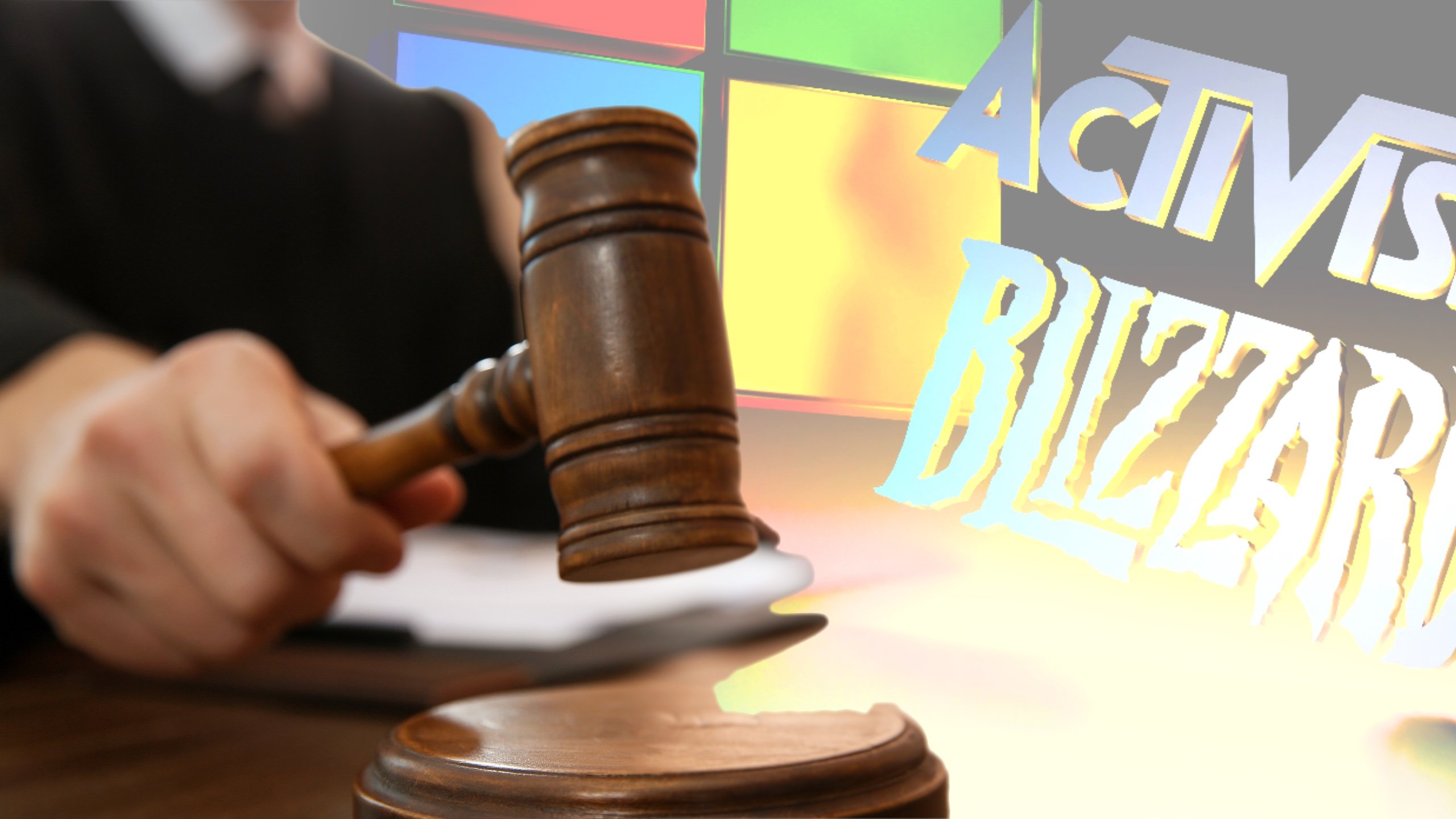
The US Federal Trade Commission (FTC) has filed a complaint against Microsoft with the US Court of Appeals, contesting the tech firm’s post-merger actions with Activision Blizzard.
The FTC’s grievance points to Microsoft’s layoff of approximately 1900 employees, including a significant number from Activision Blizzard, which contradicts its earlier pledge to keep the gaming company independent. This action raises issues about the validity of Activision Blizzard’s independence after the merger and the FTC’s ability to enforce remedies given these layoffs.
Also read: Meta Reportedly Defeats FTC to Receive Court Approval to Acquire Within
Promises versus reality
During the acquisition process, Microsoft assured that Activision Blizzard would operate as a separate company after the merger. Yet, the FTC claims this pledge was soon disregarded, as proved by the significant layoffs at Activision Blizzard right after the deal’s completion. The FTC claims that such actions are the opposite of Microsoft’s vows to the court and can signal the failure to comply with the independence of the two entities as initially stated.
“Microsoft’s recently-reported plan to eliminate 1,900 jobs in its video game division, including in its newly-acquired Activision unit, contradicts the foregoing representations.”
Regarding the merger’s integrity, the layoffs are a point of contention and a significant challenge to the FTC’s attempts to provide competent relief. The FTC fears that the massive layoffs at Activision Blizzard may hamper it from reversing the $68.7 billion merger, should it come to that.
Microsoft’s defense and the path forward
In response to the FTC’s filing, Microsoft defended its actions by saying that Activision Blizzard was already planning significant layoffs before the merger, thus suggesting that the job cuts were not a direct result of the acquisition. Microsoft’s lawyers pointed out that the layoffs were to eliminate an overlap between Microsoft and Activision, thus following a business restructuring, not to undermine Activision Blizzard’s affirmed autonomy.
“Activision was already planning on eliminating a significant number of jobs while still operating as an independent company.”
Additionally, Microsoft pointed out changes in the deal’s structure after a loss to the FTC in court in July last year. Adjustments were made to incorporate directives from the UK competition authority, including omitting cloud streaming rights for Activision Blizzard games in the United States. In addition, Microsoft and Sony came to an agreement that guarantees the continuation of Call of Duty on PlayStation under favorable conditions, showing Microsoft’s readiness to address competition issues.
“On this front, the “post-merger” developments, FTC Ltr. 1, further weaken the FTC’s case, including Sony’s signing an agreement guaranteeing it access to Call of Duty on multiple platforms.”
Microsoft’s acquisition of Activision Blizzard
The Microsoft-Activision Blizzard merger grabbed headlines globally last year and became the hottest gaming topic. The court very publicized the cases of merger, and the inner workings of the case came to public knowledge through major leakages. The $68.7 billion merger was eventually completed in December. However, it did not stop organizations such as the FTC from keeping track of the event.
Microsoft’s acquisition of Activision Blizzard has caused some significant changes in the gaming industry. It was recently suggested that Microsoft would push Xbox games to competing platforms. Nevertheless, the FTC’s complaint could lead to further changes, but widespread expectations exist that the FTC will fall flat pursuing these claims.
The battle continues
The FTC’s latest legal action against Microsoft illustrates the continued oversight of large tech mergers and acquisitions. With the FTC now appealing the district court’s decision not to injure the merger, the decision of this legal battle will impact the gaming industry and antitrust enforcement.
The tech and gaming communities are waiting to see how the US Court of Appeals will react to the FTC’s complaint. With Microsoft claiming that the merger has seen considerable changes since the FTC’s initial opposition, the case presents a complex environment for regulatory bodies, companies, and consumers.
- SEO Powered Content & PR Distribution. Get Amplified Today.
- PlatoData.Network Vertical Generative Ai. Empower Yourself. Access Here.
- PlatoAiStream. Web3 Intelligence. Knowledge Amplified. Access Here.
- PlatoESG. Carbon, CleanTech, Energy, Environment, Solar, Waste Management. Access Here.
- PlatoHealth. Biotech and Clinical Trials Intelligence. Access Here.
- Source: https://metanews.com/ftc-takes-aim-at-microsoft-again-with-new-court-complaints-against-blizzard-merger/
- :has
- :not
- 1
- 11
- 118
- 1900
- 6
- 7
- 9
- 900
- a
- ability
- About
- access
- acquire
- acquisition
- acquisitions
- Action
- actions
- Activision
- Activision Blizzard
- addition
- address
- adjustments
- After
- against
- Agreement
- aim
- already
- an
- and
- antitrust
- appealing
- appeals
- approval
- approximately
- ARE
- AS
- assured
- At
- Attempts
- authority
- Autonomy
- Battle
- became
- before
- between
- Billion
- blizzard
- bodies
- business
- but
- by
- call
- Call of
- Call of Duty
- came
- CAN
- case
- cases
- caused
- challenge
- Changes
- claiming
- claims
- Cloud
- come
- commission
- Communities
- Companies
- company
- competent
- competing
- competition
- complaint
- complaints
- Completed
- completion
- complex
- comply
- conditions
- considerable
- Consumers
- continuation
- continued
- could
- Court
- cuts
- December
- decision
- Defense
- developments
- DID
- direct
- directives
- district
- Division
- Earlier
- eliminate
- eliminating
- employees
- enforce
- enforcement
- entities
- Environment
- Event
- eventually
- exist
- expectations
- Failure
- Fall
- favorable
- fears
- Federal
- Federal Trade Commission
- Filing
- flat
- following
- For
- foregoing
- from
- front
- FTC
- further
- game
- Games
- gaming
- Gaming industry
- given
- Globally
- guarantees
- Headlines
- hottest
- How
- However
- HTTPS
- illustrates
- Impact
- in
- Including
- incorporate
- independence
- independent
- industry
- initial
- initially
- inner
- integrity
- issues
- IT
- ITS
- Job
- job cuts
- Jobs
- July
- Keep
- keeping
- knowledge
- large
- Last
- Last Year
- latest
- Lawyers
- LAYOFF
- layoffs
- lead
- Legal
- Legal Action
- loss
- made
- major
- massive
- massive layoffs
- May..
- Merger
- mergers
- Mergers and Acquisitions
- Microsoft
- multiple
- Nevertheless
- now
- number
- of
- on
- operate
- operating
- opposite
- opposition
- organizations
- out
- overlap
- Oversight
- path
- plan
- planning
- Platforms
- plato
- Plato Data Intelligence
- PlatoData
- playstation
- Pledge
- Point
- points
- presents
- process
- proved
- provide
- public
- pursuing
- Push
- raises
- React
- Read
- Readiness
- receive
- recently
- regulatory
- relief
- reportedly
- response
- restructuring
- result
- right
- rights
- saying
- see
- seen
- separate
- should
- showing
- Signal
- significant
- signing
- since
- some
- Sony
- Soon
- stated
- States
- Still
- Stop
- streaming
- structure
- such
- takes
- tech
- that
- The
- the UK
- These
- this
- Through
- Thus
- to
- topic
- track
- trade
- two
- Uk
- under
- Undermine
- unit
- United
- United States
- us
- US Federal
- us federal trade commission
- validity
- Versus
- very
- Video
- video game
- Waiting
- was
- were
- which
- while
- widespread
- will
- with
- workings
- would
- xbox
- year
- yet
- zephyrnet











